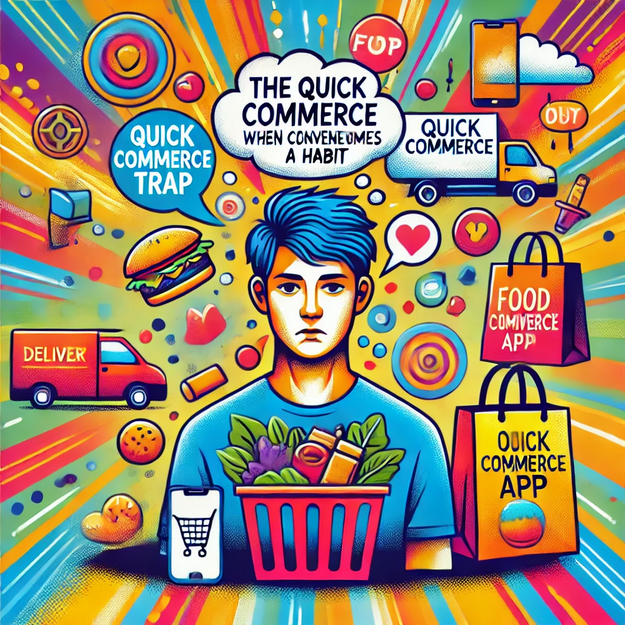In today’s fast-paced world, consumers increasingly expect speed and convenience over everything, be it food delivery, shopping, or commuting. The increase in demand has changed industries and forced businesses to adapt and innovate to meet the demands of a time-sensitive consumer base.
As people became accustomed to the convenience of home service, they began to explore quick solutions for everyday tasks and quick commerce service has emerged as a game changer for such consumers, It not only transformed the retail model but also reshaped the consumer’s behavior and expectations towards shopping.
By offering a wide variety of essentials, within 10 to 30 minutes of placing an order. Unlike traditional e-commerce, which takes days for delivery. Quick commerce services facilitate fast delivery of purchased objects, It focuses on speed, catering to the on-demand lifestyle of today’s consumers. Whether it’s late-night snacks, groceries, or personal care items It fulfills all your urgent needs.
But How Are They Able to Offer 10min Delivery?
This is made possible through “Dark stores” which are fulfillment facilities like micro warehouses that are hidden from the public but situated within a radius of 3-10 km and stocked with all necessary goods (like groceries personal care, accessories, medicine, and even PlayStation 5, Yes that is true Blinkit was able to deliver PS5 in 10 min on the launch day) When a customer places an order, the dark store packs the items available in stock and dispatches the order directly to the customer’s address.
Convenience over Cost?
As this trend continues to grow, we can expect quick commerce to become an integral part of our lives but there is a growing concern about becoming overly dependent on it.

Let’s understand how: The more you use such services, the more you start to expect things instantly making it harder to remain patient, and as the habit deepens soon even a slight delay could trigger your frustration. So your expectation when ordering things online is now set by a new benchmark and anything longer than that will seem obsolete for you. Eventually, your focus will shift to new quick services apps and now it’s confirmed you will never go the same old timeframe again. You will be ready to pay any subscription fee in the name of convenience and soon, you’re at their mercy.
Now tomorrow if they increase their minimum threshold (minimum cart value ) no matter what to reach that “minimum requirement” you will end up adding extra items which not intend to, leading to overspending without even noticing it.
It’s well known online shopping platforms often raise the prices unnecessarily the prices often fluctuating. adding hidden fees at checkout some even charge different prices to different customers for the same product, while some create fake urgency with “limited-time” offers that aren’t limited. they know their customers are willing to pay extra for the convenience they offer which makes it easy to overlook the additional costs however if one is not mindful of how to balance between convenience and thoughtful consumption. Over time this can dent your finances and put you in distress.
So how to avoid it: Think twice before you submit Don’t make haste, see for alternatives and check if other platforms are offering better deals/discounts. By taking a step back and reviewing your options, we can ensure that convenience doesn’t become our only option.
As we look to the future, quick commerce will undoubtedly play a crucial role in reshaping how we shop and receive goods, making convenience more accessible than ever before. Being mindful of these choices is essential to breaking the cycle and making smarter, more balanced decisions.

